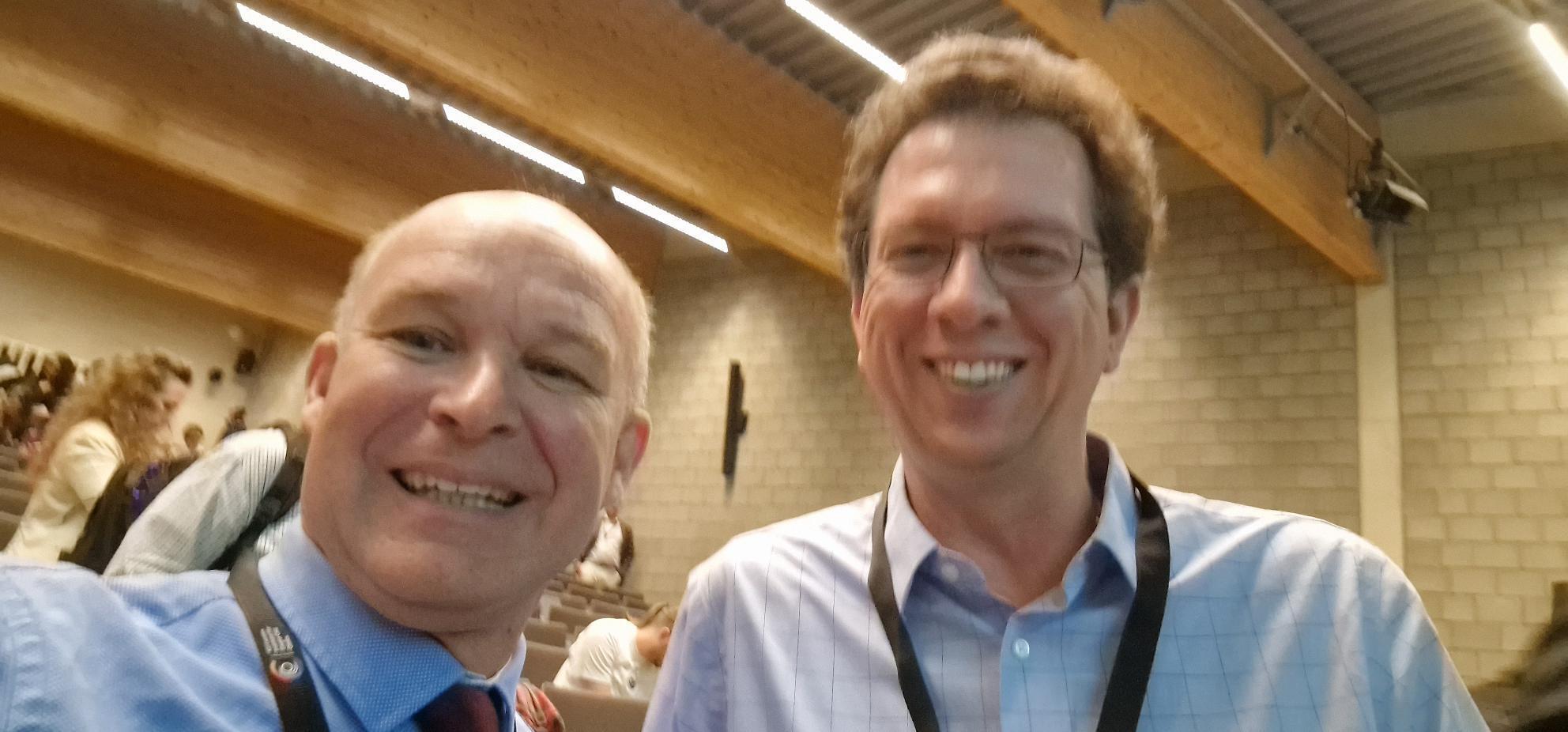Nicholas E. Navin’s Keynote on Breast Cancer at SCSOmics 2025 (with Lieven in Attendance)
At SCSOmics 2025, held earlier this year, Nicholas E. Navin, PhD, delivered a keynote address that delved deeply into recent advances in breast cancer biology. His talk focused on clonal evolution, copy number variation, and how single-cell and spatial genomics are reshaping our view of cancer onset, progression, and therapeutic resistance. Lieven Gevaert was present in the audience, contributing important commentary during the Q&A.

Who is Nicholas E. Navin ?
- Navin is Professor & Chair of the Department of Systems Biology at MD Anderson Cancer Center.
- He directs the CPRIT Single Cell Genomics Center and is co-director of the Advanced Genomic Technology Center (AGTC).
- His lab has contributed foundational work in single-cell DNA sequencing (e.g. the SNS method published in 2011) and has since advanced understanding of how cancers evolve via copy number alterations, especially in breast cancer.

Key Themes of Navin’s Talk at SCSOmics 2025
From what can be reconstructed based on Navin’s recent publications, his keynote likely included the following technical elements (you should verify these):
- Punctuated Copy Number Evolution (PCNE) in Breast Cancer :
Navin’s group has proposed models whereby instead of gradual accumulation of genomic changes, many copy number alterations happen in large, punctuated events. This has implications for how early detection, monitoring, and treatment adaptation are approached. - Multi-Clonal Invasion in Ductal Carcinoma in Situ (DCIS) :
Evidence suggests that even within what is considered “early-stage” DCIS, multiple distinct clones (genetically different subpopulations) are invading or poised to invade. These findings challenge simplistic linear models of progression. - Transcriptional Reprogramming During Therapy Resistance :
Particularly in triple-negative breast cancer (TNBC), Navin’s lab has shown that cells under chemotherapy pressure can reprogram their transcriptional states, perhaps in conjunction with copy number changes, to survive. - “Normal” breast tissue harbors genetic changes :
In one of his recent studies, Navin and colleagues found that at least ~3% of epithelial cells in healthy breast tissue already show copy number alterations (aneuploidy), and that these increase with age. MD Anderson Cancer Center This suggests that some genomic changes considered hallmarks of cancer may be more common in non-cancerous tissue than previously thought.
Lieven’s Question on DCIS Genomics and Navin’s Response at SCSOmics 2025
Distinguishing Driver CNAs in Early Breast Lesions – Highlights from Navin’s SCSOmics 2025 Discussion
During the Q&A, Lieven raised a question on how to separate driver copy number alterations (CNAs) from background genomic instability in breast cancer. Navin emphasized that advances in single-cell DNA sequencing and computational approaches now allow researchers to resolve copy number profiles at much higher resolution than in the past. He noted that these technologies can identify focal amplifications and deletions even in early-stage lesions such as ductal carcinoma in situ (DCIS), where heterogeneity is often underestimated.
Navin presented evidence that DCIS frequently contains multiple genetically distinct clones, challenging older models that treated these lesions as relatively uniform. He further highlighted how integrating spatial transcriptomics with copy number data provides new insights into the functional consequences of genomic changes. In particular, clones with recurrent copy number gains often show upregulation of cell-cycle and replication stress pathways, patterns that may be predictive of progression to invasive disease.

Recent Posts
-
Nicholas E. Navin’s Keynote on Breast Cancer at SCSOmics 2025 (with Lieven in Attendance)
At SCSOmics 2025, held earlier this year, Nicholas E. Navin, PhD, delivered a keynote address that d …17th Sep 2025 -
Reflections on Our Experience at the Vatican Longevity Summit
On March 24, 2025, the Vatican opened its doors to a remarkable gathering of scientists, ethicists, …25th Mar 2025 -
Gentaur : The Leading Distributor of Applied Biological Materials (ABM) in Belgium and Europe
Driving Scientific Innovation with ABM's Cutting-Edge Products Gentaur has long been the trusted dis …19th Mar 2025




